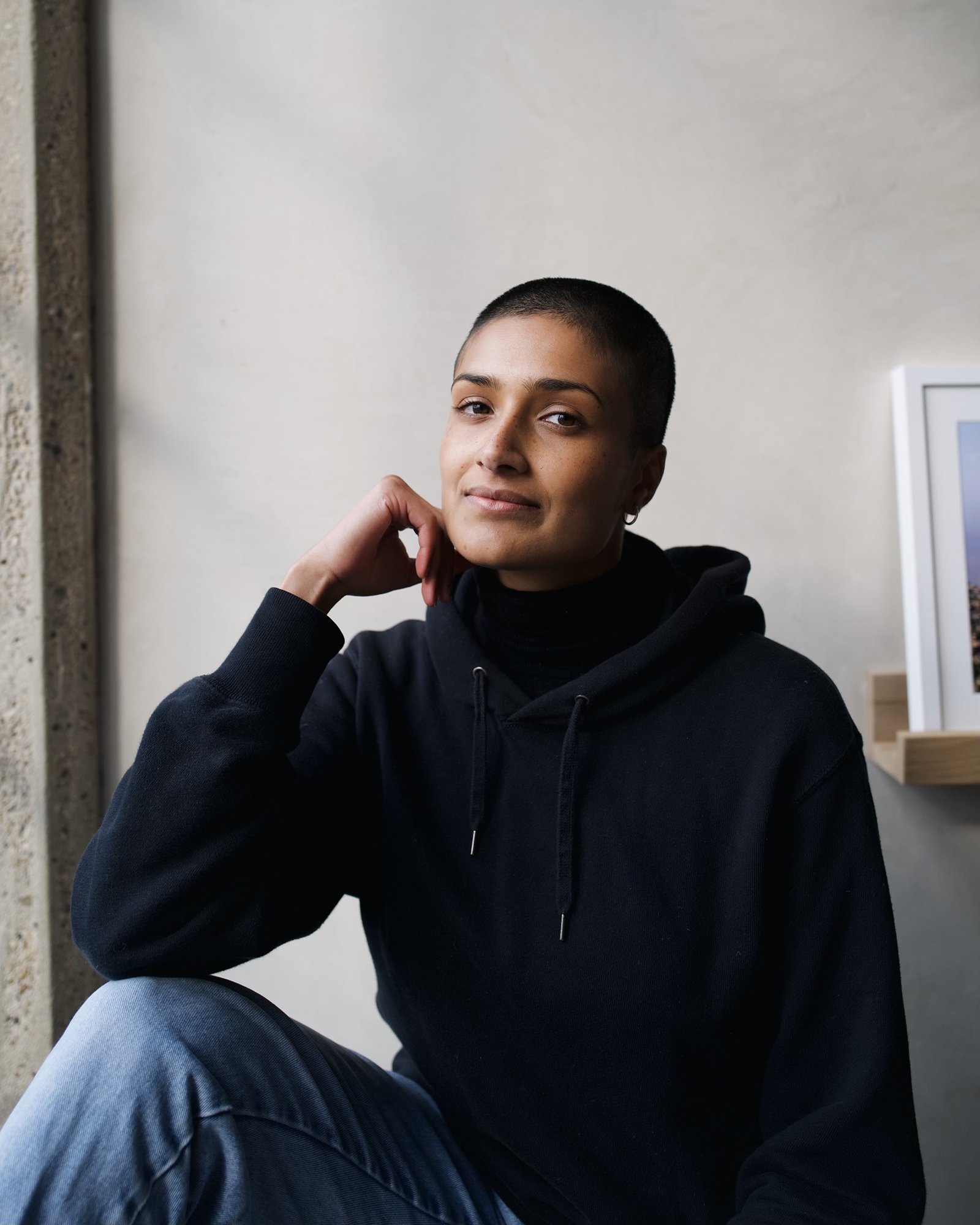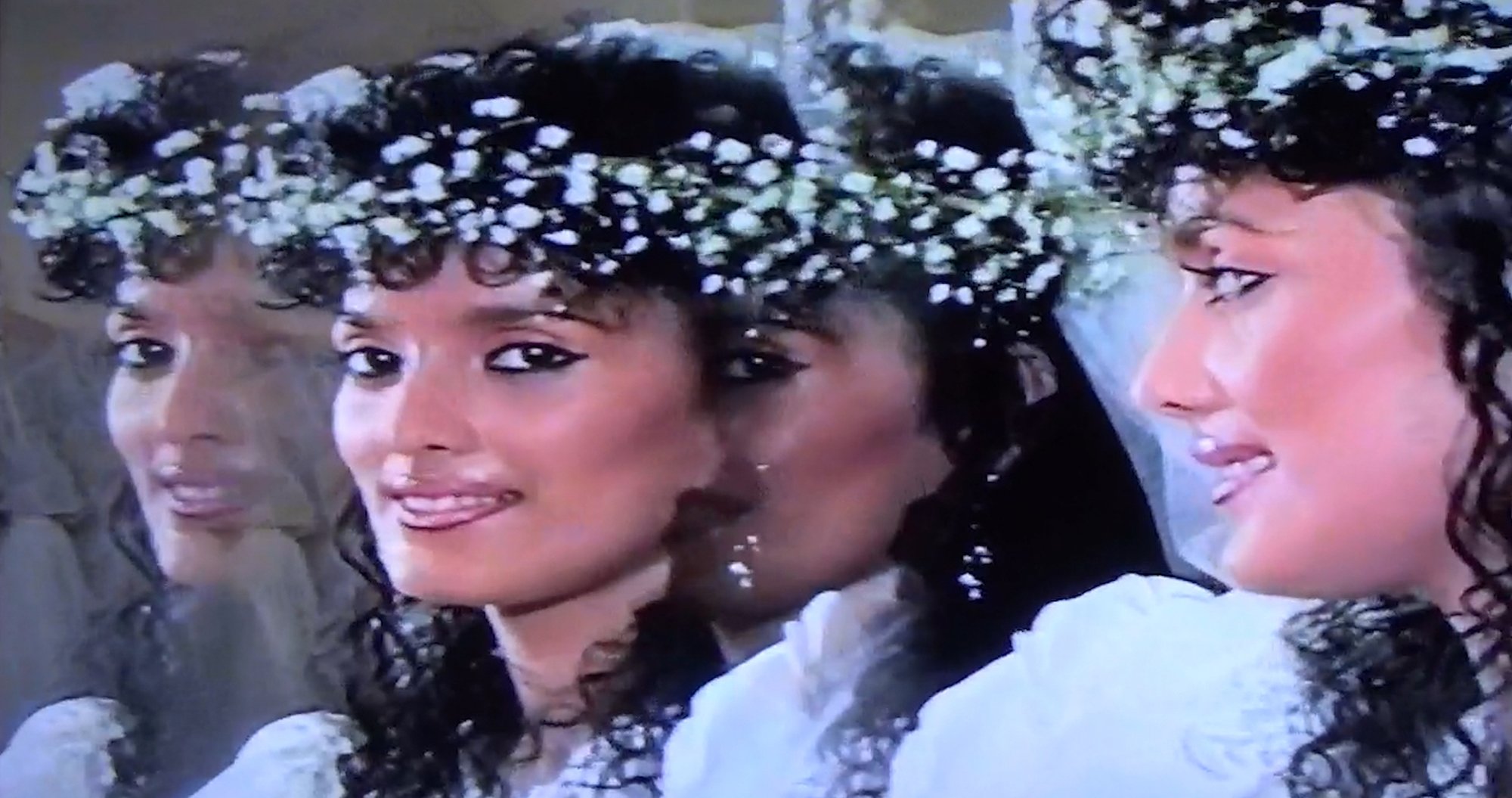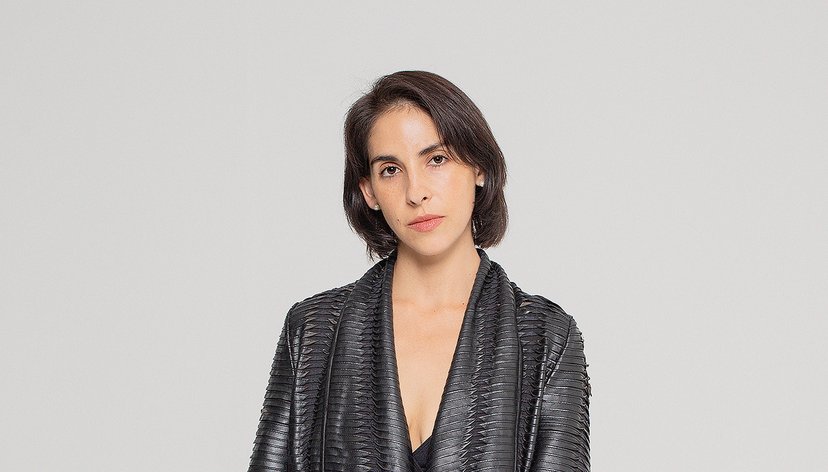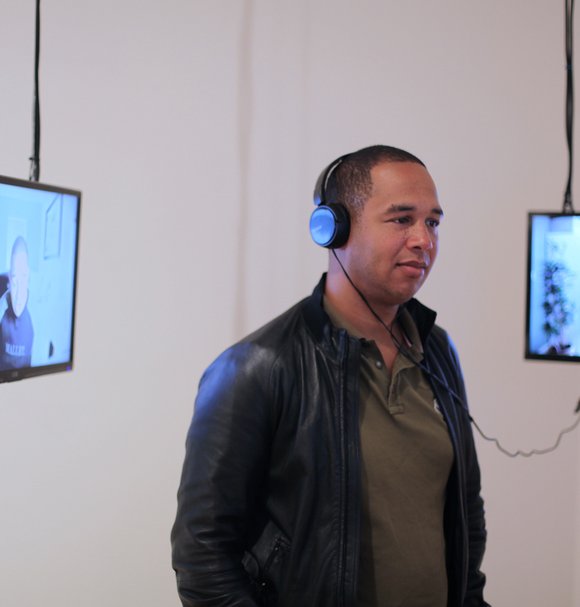
Key details
Date
- 28 February 2023
Read time
- 5 minutes
Chloe Abrahams (Contemporary Art Practice, 2022) is a Sri Lankan British artist and filmmaker. Through moving image, sound, writing, and spoken-word performance, she explores memory, trauma, the everyday and the intersections between them.
Key details
Date
- 28 February 2023
Read time
- 5 minutes
Chloe Abrahams was selected for The London Open at the Whitechapel Gallery in 2022 and her first feature documentary ‘The Taste of Mango’ is being premiered at film festivals in the USA.

You’re currently working on your first feature documentary ‘The Taste of Mango’ – can you tell us more about the film?
‘The Taste of Mango’ is a feature length non-fiction film that I've been working on for about four years, so it predates my time at the RCA. It's about three generations of women in my family – my grandmother, my mother and myself – and the challenging relationships we have with each other but also the joys, and the impact of trauma on motherhood.
It's going to have its premiere at a film festival called True/False, in Columbia, Missouri, which is a festival for non-fiction films that are in between genres. Then it’s being shown at First Look at the Museum of Moving Image in New York.
It's my first long form film work, so I'm very excited to get it out there.
“I wanted to use the RCA as a space to experiment with form and bring those experiments into the film in different ways.”
MA Contemporary Art Practice alumni
Was it something you wanted to work on during your time studying MA Contemporary Art Practice?
I knew I wasn't going to actively work on the film, but instead I wanted to use the RCA as a space to experiment with form and bring those experiments into the film in different ways.
The biggest influence of the RCA on my film has been the writing. Before I came to the RCA I really didn't think I could write. But doing the dissertation was the highlight of my time at the College.
I wrote an experimental text called ‘Notes from a Young Girl’. I took about 175 notes that I had written on my phone over 10 years and rearranged and commented on them to tell a story about memory, violence and sexuality – which I then re-worked into my final degree show piece as a multilayered audio work. It was in going through these notes, editing and writing new ones that I started to actually feel like I could write. A few of those really played into the narration of the film.

Your films draw on deeply personal themes – tracing shared trauma within your family, as well as your own experiences. Why is it important for you to tell these stories?
Since my time studying BA fine art at Central Saint Martins I've been doing really personal work. I think it comes from a deep need to get things out and work through things in a physical way outside of my brain. It's a therapeutic way of working with any thoughts that I have and personal things that I feel I need to work through.
Often the response I get to my most personal work is people telling me that I've helped them think about something similar that they’ve gone through. It feels like a helpful process, not only for me, but also for people who experience the work.
“The work is about the malleability of memory, specifically traumatic memory, as well as the cacophony of a monologue, and forgetting.”
MA Contemporary Art Practice alumni
Could you speak about the work that you exhibited at the Whitechapel Gallery for The London Open 2022?
I showed a piece of work that I made at the RCA called, ‘And Then It Got A Bit Weird’. In 2019, my drink was spiked. I didn't realise that until a couple of days later, while I was sending a voice note to my friend to tell her about this crazy night out that I'd had. As I was describing the night I started to realise that I hadn't drunk that much, and then started to remember some other things that had happened. But most of my memory from that night was completely gone. It took me a while to come to terms with everything that had happened and then it took a couple of years to be able to work with that as material.
I turned the voice note into a monologue, which I shared on a casting call website. I got people to send me self tapes and eventually decided to work with an actor called Chris Steward. He performed the monologue in three different ways. The final work is a three-channel video installation where the monitors encircle the viewer and all three takes are played simultaneously. They're looped individually, so each time somebody watches it it's a slightly different experience to the person before. The work is about the malleability of memory, specifically traumatic memory, as well as the cacophony of a monologue, and forgetting.

Why did you choose to use a male actor?
I did Zoom calls with numerous different actors after their self tapes and found that I believed the male actors more. I started to really question why this was. I think it was a combination of my own internalised stigma, but also perhaps that the male actors believed themselves more.
I think race and gender both play a part in how people think the narrative is going to unfold. Some people have thought Chris was going to end up being the perpetrator. I was trying to play as much as I could with how I could challenge people's perceptions and to make people question their own views.
You performed a spoken word piece, which is based on the same material as ‘The Taste of Mango’. How does your work in different media like this interact or inform each other?
That performance was the first ever spoken word piece that I had done. I’d already incorporated all of that writing into the film and it was something that I knew off by heart already. But it started to have its own life once I spoke it in this new way.
Being at the RCA I really enjoyed being able to use different elements from the film to test different forms, or to create new works that live in their own space.
It seems that what you got from the RCA was space to experiment, a platform to try things out and develop your practice rather than creating a specific outcome.
Definitely. That was the mindset I went into the course with and that's also what I achieved coming out of it.
Prior to starting the Masters I had been working in documentary film distribution for a few years. It was very focused on the market and sales aspect of filmmaking, which left me wanting to experiment and make things without thinking of the commercial implications. I wanted to spend time making for the sake of making. I knew my film would suffer if I didn't do that.
Was there anything that surprised you about the way your practice developed at the College?
I didn’t expect writing to become a part of my practice. I'm dyslexic but I only found out when I was doing my art Foundation. I had always been so ashamed of my writing. On my Foundation course we had to write journals about our practice. My tutor would want to see those, or ask me to read from them and I couldn't. I just gave him my journal and left the room; I couldn't even see him reading my writing. To have gone from that to being able to perform my writing on stage in front of people – that's been a really big surprise, and I feel proud of that.

When you look back at your time at the RCA is there a particular moment that stands out for you?
Thinking of one specific moment, it was probably the trip to Glasgow where I did that first spoken word performance. Being in a room full of people – half of them from the RCA, half from Glasgow School of Art – and feeling very supported in this new thing that I was trying, and that excitement. I don't think I'll forget that excitement of going on stage like that for the first time.
Overall, when I think back, I know I will never forget the energy and warmth of all the tutors, particularly Aura Satz and Jordan Baseman, who really carried us through the course which was mostly online due to the pandemic. The zoom workshops with other artists like Mania Akbari changed the way I was thinking about my practice and I’ll be forever grateful.
“I don't think I'll forget that excitement of going on stage like that for the first time.”
MA Contemporary Art Practice alumni

